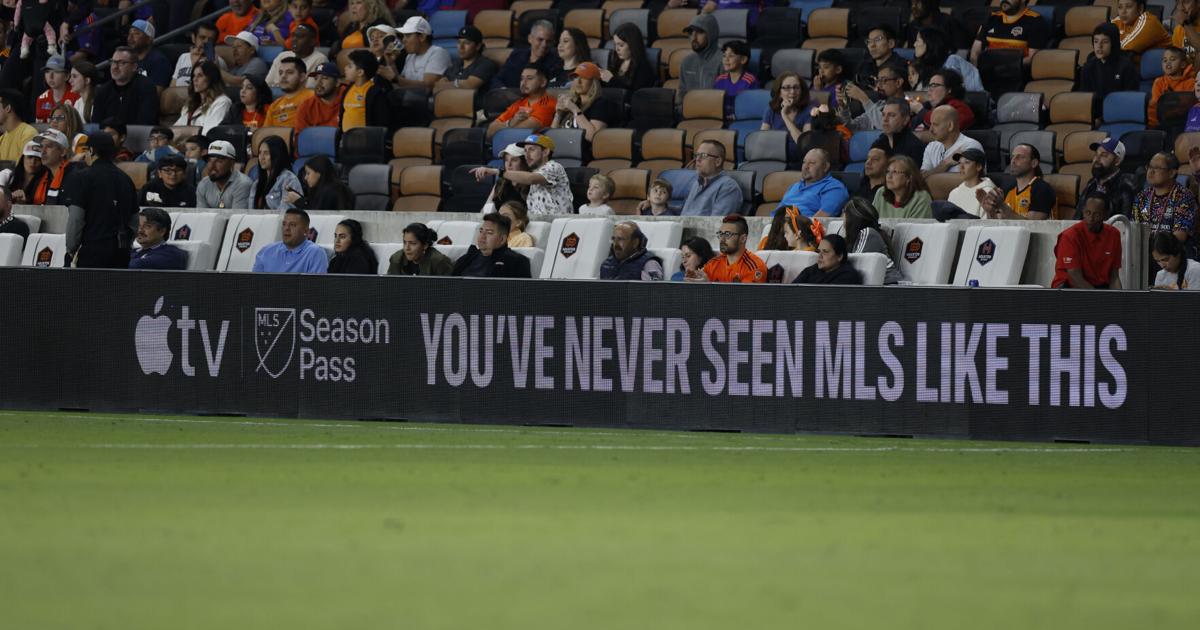Apple TV thoroughly covers St. Louis City SC, MLS. But who's watching? Media Views

```html
MLS and the Streaming Gamble: Reaching Global Fans, Missing Local Viewers?
The Apple Exclusivity Puzzle
St. Louis City SC, now in its third MLS season, remains largely a televised enigma for casual fans. Their games are primarily locked behind Apple's "MLS Season Pass" paywall, a byproduct of the league's ambitious 10-year, $2.5 billion streaming deal.
While Apple delivers high-quality coverage, a crucial question lingers: just how many are actually watching? The league and Apple remain tight-lipped about subscriber and viewership numbers, leaving a cloud of mystery around the deal's success.
MLS Commissioner Don Garber claims subscriptions are exceeding projections, but without concrete figures, it's hard to gauge the true impact. He promises more "transparency" in the future, but for now, the data remains shrouded in secrecy.
A Bold Streaming Strategy in a Traditional Sports Landscape
MLS is diving headfirst into streaming, while other major American sports leagues are merely dipping their toes. Garber argues this strategy aligns with the league's younger demographic, comfortable with streaming and accustomed to watching international soccer online.
"We have the youngest audience of the five major (U.S. pro sports) leagues," Garber stated. "Our fans said to us, 'We're watching most soccer from a streaming service.' So we're delivering them that way."
However, this approach risks alienating potential fans who lack access to or comfort with streaming services. These are the very viewers who might stumble upon a game on traditional television and become hooked.
Global Reach vs. Local Visibility
Garber highlights Apple's global reach as a key driver behind the deal, making MLS accessible worldwide without blackouts. This is particularly relevant given the influx of international stars like Lionel Messi, whose presence boosts the league's appeal far beyond U.S. borders.
“Apple gives us an opportunity to have a global offering,” Garber emphasized, pointing to the ability for fans in "Munich or Miami or San Diego or Sao Paulo" to watch games in 4K on various devices. "In our view, it is the future of consumption.”
But what about those in the U.S. unwilling or unable to navigate the streaming landscape? The criticism isn't about the quality of Apple's broadcasts, which are undeniably comprehensive, but the limited accessibility for the core American audience.
Traditional TV: A Mere Glimpse
A handful of MLS games do air on Fox and FS1, but these represent a tiny fraction of the total matches. These limited broadcasts haven't generated significant viewership in St. Louis, raising concerns about the league's ability to attract new fans through traditional avenues.
The declining viewership of the MLS Cup final on traditional television further underscores the challenge. Though extenuating circumstances like competing programming may have played a role, the drop is still alarming.
An Evolving Landscape?
Hints suggest the league might reconsider its streaming-centric approach and increase the number of games available on traditional television. Garber acknowledged the value of a broader reach, stating, "I do believe the megaphone that you have with linear (broadcast and cable TV) still is valuable. I do think it will evolve over time.”
The future of MLS viewership remains unclear. Will the gamble on streaming pay off, or will the league need to find a better balance to engage both global and local audiences?